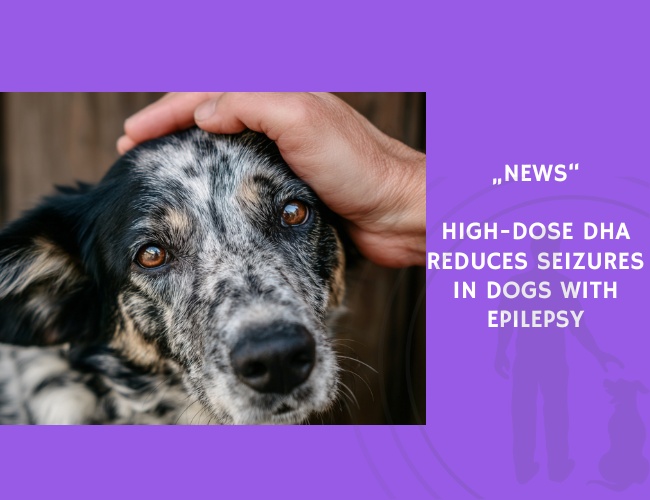Idiopathic epilepsy is one of the most common chronic neurological disorders in dogs, often requiring long-term management with anti-seizure medications. However, many dogs continue to experience breakthrough seizures despite treatment, prompting interest in supportive nutritional interventions.
In this open-label pilot study, T. Yonezawa and colleagues (2023) evaluated the effects of high-dose DHA supplementation in six dogs with idiopathic epilepsy (median age: 6 years). Dogs had been diagnosed with epilepsy using MRI and cerebrospinal fluid testing and experienced a median of 9 seizures per month prior to treatment. DHA was administered orally at doses of 69–166 mg/kg/day for up to six months, while existing medications remained unchanged.
Results showed that all dogs experienced a seizure reduction of at least 50% within 2–3 months. By months 5–6, three dogs improved dramatically to only 0–1 seizures per month. Importantly, no adverse effects were observed in general health status or blood parameters throughout the trial.
Although limited by its small sample size and lack of randomization, this study provides preliminary evidence that high-dose DHA supplementation may be a safe and effective adjunct therapy for reducing seizure frequency in canine idiopathic epilepsy. These findings align with growing interest in omega-3 fatty acids and the gut–brain axis as therapeutic targets in veterinary and human neurology.
Source: Yonezawa, T., Marasigan, C., Matsumiya, Y., Maeda, S., Motegi, T., & Momoi, Y. (2023). Effects of high-dose docosahexaenoic acid supplementation as an add-on therapy for canine idiopathic epilepsy: A pilot study. Open Veterinary Journal, 13, 942–947. Authors: T. Yonezawa et al. Publication Date: July 1, 2023. Journal: Open Veterinary Journal.










